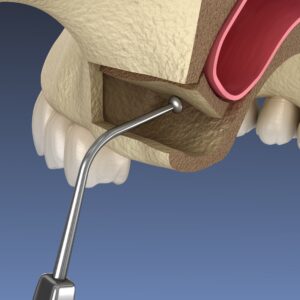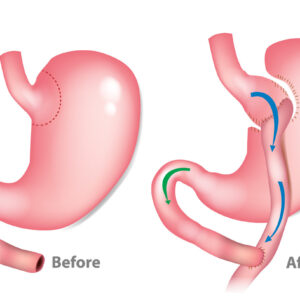Description
Familiarity with Treatment
Cochlear implants and Bone Anchored Hearing Aids (BAHA) are advanced hearing solutions designed to improve hearing for individuals with certain types of hearing loss. Cochlear implants are surgically implanted electronic devices that bypass damaged parts of the inner ear and directly stimulate the auditory nerve, while BAHA is a bone conduction hearing aid that transmits sound through the skull bone to the inner ear.
Procedure
The procedure for Cochlear Implant with BAHA involves surgical implantation of the devices. For BAHA, a metal implant is inserted into the skull, and for Cochlear Implants, an electronic device is surgically placed under the skin behind the ear, with an array of electrodes inserted into the cochlea.
Who is it Suitable For?
Cochlear implants and BAHA are suitable for individuals with specific types and levels of hearing loss. BAHA is often suggested for children who cannot use conventional hearing aids due to underdeveloped ear structures or certain types of hearing loss. Cochlear implants are suitable for individuals with severe to profound sensorineural hearing loss who receive limited benefit from hearing aids.
Who is it Not Suitable For?
Cochlear implants and BAHA may not be suitable for individuals with certain medical conditions or anatomical limitations that may affect the surgical implantation or the effectiveness of the devices. A comprehensive evaluation by a specialist is necessary to determine suitability for these interventions.
Advantages
- Improved Hearing: Cochlear implants and BAHA can significantly improve hearing and speech understanding for individuals with specific types of hearing loss.
- Quality of Life: Studies have shown a significant increase in the quality of life from BAHA, demonstrating the social and physical benefits of these devices.
- Relief from Tinnitus: BAHA has the potential to relieve tinnitus in addition to its primary function of transmitting sound through bone conduction.
Complications
- Surgical Risks: As with any surgical procedure, there are inherent risks associated with the implantation of cochlear implants and BAHA, including infection, bleeding, and anesthesia-related complications.
- Device-related Complications: Complications related to the devices themselves, such as device failure, may occur and require professional attention.
Preoperative Care
Preoperative care for Cochlear Implant with BAHA involves a comprehensive evaluation by a specialist to assess the type and level of hearing loss, anatomical considerations, and overall suitability for the surgical implantation of these devices.
Postoperative Care
Following the surgical implantation of Cochlear Implant with BAHA, individuals should adhere to postoperative instructions provided by their healthcare team. This may include guidelines for wound care, device activation, auditory rehabilitation, and regular follow-up appointments to monitor the function and performance of the devices.
Cochlear implants and Bone Anchored Hearing Aids (BAHA) are advanced hearing solutions that can significantly improve hearing and quality of life for individuals with specific types of hearing loss.






Reviews
There are no reviews yet.